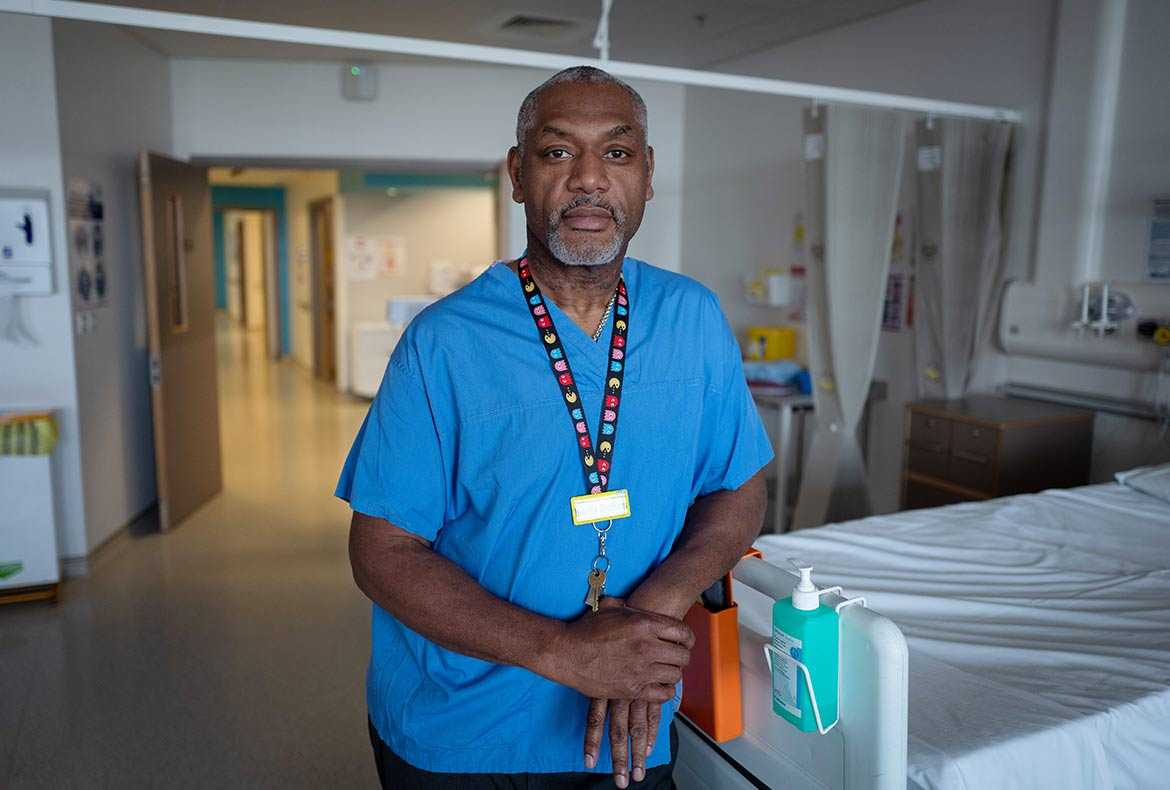Martin Griffiths is the lead trauma surgeon at the Royal London Hospital - one of the busiest trauma units in the UK, currently dealing with the impact of unprecedented levels of knife and gun crime.
As violence in the capital escalates, a quarter of Martin’s patients have sustained knife and gun injuries, and colleagues with military experience compare his clinic to an “Afghan war zone”.
Schoolchildren as young as nine in school uniforms are admitted with multiple life-threatening wounds. “More young people are likely to carry weapons - and to use them - then they were before, and we’ve been seeing signs of increasing numbers and severity for some time,” says Martin.
“These guys don’t realise that the injury they inflict in a moment of emotional incontinence results in a life-changing event that punishes the patient, the assailant and both of their families for life. They think it’s glamorous, but they don’t know about the pain and the suffering.”
Martin has been so moved by the devastation caused by the senseless violence he witnesses on a daily basis, that for the last 15 years, he has been educating young people about the grave realities of knife and gun crime.
He gives talks in schools and also spearheaded The Barts Health Reduction Service - the UK’s first programme which offers specialist ward-side intervention.
The innovative scheme enlists case workers to engage with young patients injured through gang crime while they’re still being treated in hospital to help break the cycle of violence at the point of crisis.
“Young people don’t want that life for themselves - and no parent wants their child to be imprisoned, injured or dead. But they often lack the tools to deliver that change and that’s where programmes like ours are so important,” says Martin. “We are not just a hospital. We are a place of safety, advice and a beacon of hope.”
Martin also saved the life of the first stabbing victim of the London Bridge terror attack last June. Richard Livett was rushed to the Royal London Hospital with serious knife wounds, where Martin carried out life-saving surgery.
Martin, 50, was inspired to become a trauma surgeon after a relative was stabbed to death while he was at medical school. He says: “I look after the community I live in because that’s what people should do. I care about the future of this country because I’m a proud member of this society. I am striving to improve the quality of life of every person in the UK. I’m so proud of what I do, and being part of the NHS, because it’s an incredible service.”
https://nhs-heroes.co.uk/winners-2018/martin-griffths-hero-doctor#sigProIde3ce424f18


